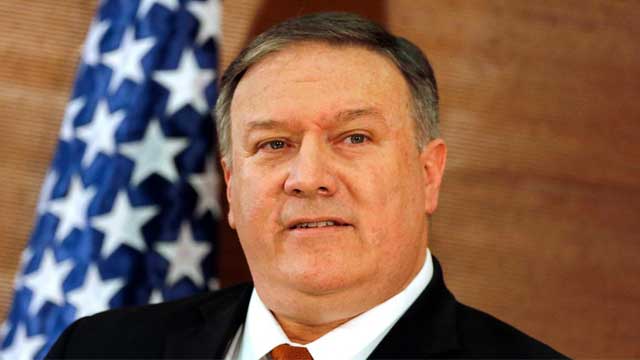ADVANCING STRONG PARTNERSHIPS BETWEEN AMERICA AND THE GULF
The United States is committed to its partnerships with Bahrain, Kuwait, Oman, Qatar, Saudi Arabia, and the United Arab Emirates.
These Gulf partnerships are critical to achieving shared regional objectives: defeating ISIS, countering radical Islamic terrorism, protecting global energy supplies, and rolling back Iranian aggression.
The Gulf countries are all partners in the Global Coalition to Defeat ISIS campaign, and have contributed billions of dollars in aid to Syria and Iraq.
The Secretary will lead the U.S. delegations at the U.S.-Qatar and U.S.-Kuwait Strategic Dialogues to expand our cooperation in important areas including defense, counterterrorism, trade and investment, energy, education, and culture.
The United States remains Qatar’s largest foreign investor and single largest source of imports, with more than 120 U.S. companies operating in Qatar.
Since Kuwait’s liberation in 1991, the United States has continued to support its sovereignty, security, and independence, as Kuwait in turn supports regional stability.
BUILDING SUPPORT FOR THE PRESSURE CAMPAIGN AGAINST IRAN
A united Gulf Cooperation Council (GCC) is the backbone for regional peace, prosperity, security, and stability, and is essential to countering the single greatest threat to regional stability: the Iranian regime.
The Secretary will work with leaders from the GCC, as well as Egypt and Jordan, to stop the Iranian regime’s destructive behavior throughout the region and advance the proposed Middle East Strategic Alliance.
Bahrain is a staunch supporter of countering Iran’s malign efforts and works in close coordination with the United States to expose and counter Iranian Revolutionary Guard Corps (IRGC) proxies. Bahrain continues efforts to investigate and counter Iranian sanctions evasion and combat illicit maritime activity.
The United Arab Emirates works in close coordination with the United States to target illicit financing schemes that benefit the Iranian regime.
Kuwait closely monitors compliance with Iran sanctions and works in cooperation with the United States to combat sanctions evasion.
Oman cooperates with the United States to combat sanctions evasion and illicit material transfers.
Qatar has taken important steps to comply with Iran sanctions.
Saudi Arabia works in close coordination with the United States to counter the expansion of Iranian presence and influence in the region.
SPURRING MOMENTUM ON THE REGION’S MOST CHALLENGING ISSUES
The Secretary will underscore to our Gulf partners the key roles they play in resolving the most critical issues facing the region including: the humanitarian crisis instigated by the Iranian-backed Houthi rebels in Yemen; the critical need for a peaceful diplomatic solution to the Syrian crisis in a manner that honors the will of the Syrian people and expels every last Iranian boot from the country; efforts to achieve a negotiated settlement of the Afghan conflict that ensures Afghanistan is never again a platform for international terrorism; support for the UN-facilitated political process in Libya; countering the proliferation of missiles and other weapons, particularly to non-state actors; the complete defeat of ISIS throughout the region; and the global effort to combat terrorism.
Saudi Arabia, the United Arab Emirates, Kuwait, and Oman were instrumental in arranging the recent, UN-led political consultations on Yemen in Sweden. The Secretary will engage with each of these countries to encourage further progress on a political solution to the conflict.
Oman seeks opportunities to promote peace in the region. The Secretary will discuss America’s anti-Iran campaign and efforts to bolster partnerships in the region including the Middle East Strategic Alliance, encouraging Middle East peace efforts, and supporting an end to hostilities in Yemen.





